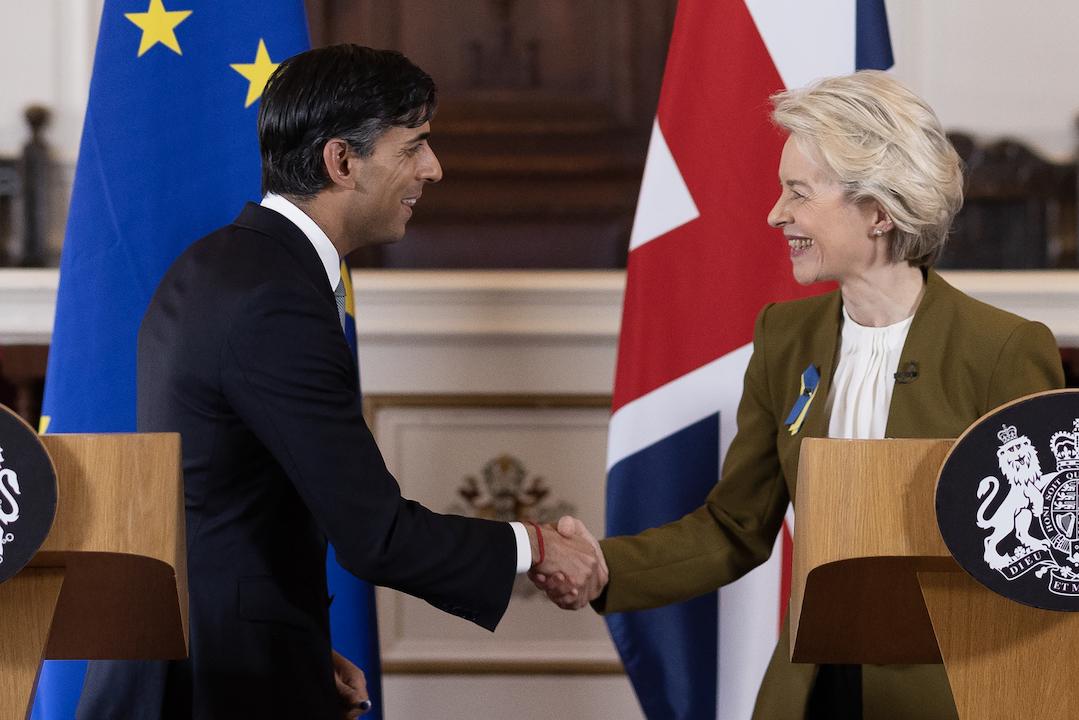The UK government has no plans to seek changes to its new agreement with the EU on post-Brexit trading arrangements with Northern Ireland despite the Democratic Unionist Party’s (DUP’s) decision to vote against it, Downing Street has said.
The so-called Windsor Framework—which Prime Minister Rishi Sunak agreed with the European Commission President Ursula von der Leyen in February—aims to solve the dispute between the UK and the EU over the Northern Ireland Protocol by significantly reducing the number of post-Brexit checks on goods entering Northern Ireland from Great Britain.





